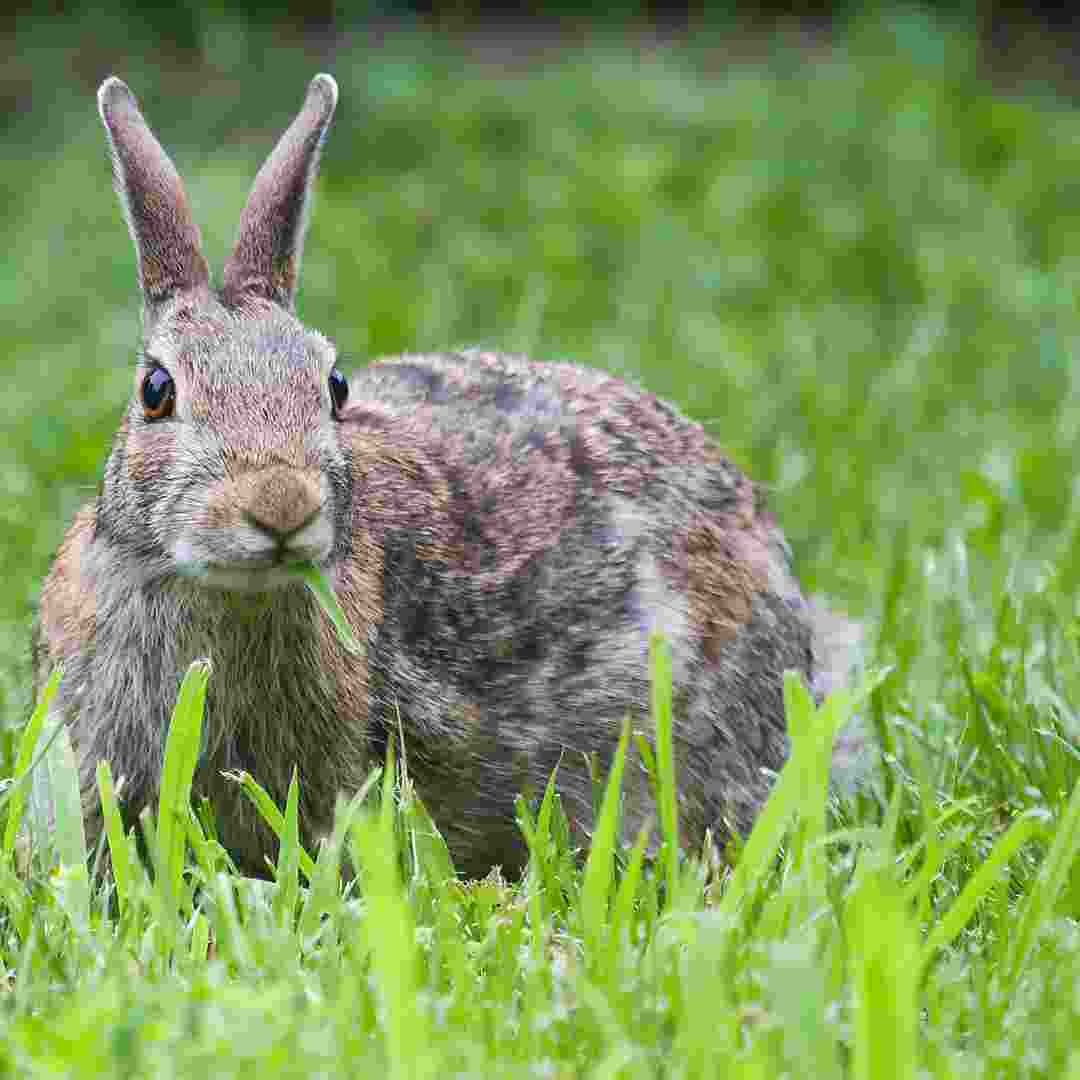Contents Table
Introduction
How to Spot Garden Rabbit Damage
How to Stop Rabbits from Eating Your Plants Naturally
How Rabbit-Proof Fencing Benefits Your Garden
How to Grow Rabbit-Resistant Vegetables
Rabbit Repellents: Pros and Cons for Your Garden
Q&A
Conclusion
Introduction
Rabbits are widespread garden pests that harm plants and landscapes. They eat vegetables, flowers, and bushes and can destroy a garden if left unchecked. Rabbits build burrows and munch grass, damaging lawns. Rabbit control and garden protection are possible using several approaches.
How to Spot Garden Rabbit Damage
Rabbit droppings and eating plants and veggies can damage gardens. To protect your plants, you must identify rabbit damage in your garden.
The most visible evidence of rabbit damage is droppings. These clustered pellets are tiny and spherical. The earth has rabbit hair and tracks.
Rabbits eat vegetables, flowers, and shrubs. Check for nipped leaves, stems and blossoms. Rabbits also dig shallow holes to access plant roots.
Most rabbits are active at night, so check for damage in the morning. If you notice damage, protect your plants. The best technique to keep rabbits out of your garden is fencing. Keep the barrier at least two feet high and six inches underground.
If you find rabbit damage in your garden, safeguard your plants. Fencing is the best way to keep rabbits out, but repellents and traps can help.
How to Stop Rabbits from Eating Your Plants Naturally
1. Grow rabbit-resistant plants like lavender, marigolds, and daffodils. Gardening with them can deter rabbits from eating your plants.
2. Use fencing to keep rabbits out of your garden. Keep the barrier at least two feet high and six inches underground.
3. Use commercial repellents to keep rabbits away from your plants. Rabbits dislike garlic, pepper, and predator urine in these repellents.
4. Use natural predators: Planting shrubs and trees that attract raptors and owls will keep rabbits out of your yard.
5. Remove food sources: Remove rabbit-attracting food sources like fallen fruit and birdseed from your garden.
6. Clean up your garden: Regularly clearing weeds and garbage deters bunnies from devouring your plants.
How Rabbit-Proof Fencing Benefits Your Garden
Protecting your garden against rabbits with rabbit-proof fencing is cost-effective. Rabbits consume plants, flowers, and vegetables and dig up dirt, damaging gardens. Rabbit-proof fencing prevents rabbits from crossing.
The most typical rabbit-proof fencing is galvanised steel or plastic mesh. This sturdy fence is frequently erected around the garden. The mesh is small enough to keep rabbits out but large enough to let air and sunlight reach the plants.
Solid wood or metal fencing is another rabbit-proof option. This fence is more expensive than a mesh fence but keeps rabbits out better. Solid fences are frequently erected around the garden and can be customised to its size and design.
Rabbit-proof fencing can help protect garden plants. A mesh fence helps keep rabbits out of a vegetable patch. A strong fence can safeguard a fruit tree or flower bed.
Rabbit-proof fencing protects gardens from rabbits. It is inexpensive, easy to install, and customisable to your garden size and shape. Keep rabbits out of your garden and protect your plants with rabbit-proof fencing.
How to Grow Rabbit-Resistant Vegetables
Gardening is fun, but bugs may make it difficult. Rabbits, a common garden pest, can swiftly destroy a vegetable garden. Many crops are naturally rabbit-resistant, so planting them can help protect your garden.
Before growing rabbit-resistant veggies, consider the correct types. Rabbit-resistant vegetables include onions, garlic, potatoes, rhubarb, and artichokes. Kale, cabbage, cauliflower, Brussels sprouts, and broccoli are also avoided by rabbits.
After choosing vegetables, prepare the soil. Work the soil to compact it since rabbits like soft, loose soil. This will make rabbit digging harder and protect your veggies.
Your garden needs a barrier next. Rabbits are best kept out by fencing, but it's pricey. Instead of a fence, use chicken wire, netting, or human hair.
Finally, garden cleanliness is crucial. Overgrown gardens with debris attract rabbits. To deter rabbits, remove weeds, dead plants, and other waste from your garden.
You may make a rabbit-proof vegetable garden by following these procedures. With a little work, you can harvest lots of excellent vegetables.
Rabbit Repellents: Pros and Cons for Your Garden
Rabbit repellents are popular for keeping rabbits out of gardens, but they have benefits and cons.
Pros
The ease of usage of repellents is a major benefit. Most repellents are sprays that can be applied to garden plants and soil. They are convenient and cost-effective rabbit protection for plants.
Rabbit repellents can also keep rabbits out of gardens. Many repellents incorporate natural compounds that rabbits dislike due to scent or taste. This may deter them from the garden.
Cons
Cost is a major downside of repellents. Repellent for the entire garden might be expensive, depending on its size.
Repellents might also fail if misused. Incorrect or frequent repellent use may cause rabbits to get used to the smell and stop being deterred.
Additionally, repellents can harm other animals and plants. Some repellents contain poisonous substances that can harm birds and plants if applied heavily.
Before employing repellents, weigh the positives and cons. They can keep rabbits out of the garden. Repellents can protect plants against rabbits safely and cheaply if used properly.

Q&A
Q: What are frequent garden rabbit issues?
A: Rabbits devour plants, dig holes, and leave droppings in gardens.
Q: How can I keep rabbits out my garden?
A: Fencing, repellents, and other methods can keep rabbits out of your garden. Rabbit-resistant plants are available.
What is the best approach to get rid of garden rabbits?
A: Fencing, repellents, and other deterrents are the best ways to control rabbits in your yard. You can trap and move rabbits.
What damage can rabbits do to my garden?
Your garden can be damaged by rabbits devouring plants, digging holes, and droppings. They also spread parasites and diseases.
Q: Are there natural rabbit control methods for my garden?
A: Garden rabbit control is possible with natural methods. Plant rabbit-resistant plants and repel with garlic, chilli pepper, and predator urine.
Conclusion
Rabbits can be a garden pest, but they can be controlled. Gardeners can protect plants against rabbits by fencing, repellents, and other means. Providing alternative food and habitat can also reduce garden rabbits. Gardeners may enjoy their plants without bunnies with a little effort.
